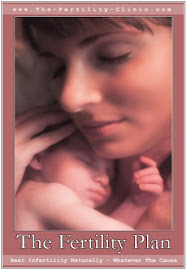
A new study published in European Obstetrics & Gynaecology (European Obstetrics & Gynaecology, 2011;6(2):92-4) shows that DuoFertility used for six months (a small body-worn monitor coupled with an expert consultancy service) gives the same chance of pregnancy as a cycle of in-vitro fertilisation (IVF) for many infertile couples. This study demonstrates that there is a viable non-invasive, drug-free alternative to IVF for thousands of couples, with the potential to save them (and the NHS) millions of pounds each year. The paper, by Chausiaux et al, is the first peer-reviewed publication of clinical pregnancy rates using the new DuoFertility product and service. The lead author, Dr. Oriane Chausiaux, has been researching infertility for over a decade in Paris and Cambridge. Summarising the results, she said "Although we have been observing higher than anticipated pregnancy rates with this programme for some time, and reporting this at academic conferences, this is the first study with sufficient statistical power to meet the stringent criteria of the peer review publication process. The results show that for couples suffering from unexplained infertility as well as a variety of other factors, six months using DuoFertility is as effective as a cycle of IVF and twelve months using DuoFertility yields a higher clinical pregnancy rate than a cycle of IVF - even at the 95% confidence level". The study followed the first 500 couples using DuoFertility from launch in 2009, including 242 who qualified for IVF/ICSI treatment, of whom 90 had previously had the procedure. The one-year clinical pregnancy rate for those who qualified for IVF was 39%, which is higher than either the UK or EU clinical pregnancy rates for a cycle of IVF (26% and 28% respectively), whilst the corresponding rate for those who had already been through a cycle of IVF/ICSI was 28%. The impact of the study by Chausiaux et al is clear. For many couples, not only is IVF invasive for the woman and demeaning for the man, it is a procedure needlessly costing the NHS, or the couple themselves, thousands of pounds. Whilst a typical cycle of IVF costs the NHS around £4,500 including drugs and consultancy, the cost in the private sector (which accounts for 80% of IVF procedures performed in the UK) is typically £7,000. By comparison the DuoFertility program offers a year of monitoring and support for £495 and has now been shown to be equally or more likely to achieve pregnancy. Not only this, but the company offers to refund those couples who have not achieved pregnancy after a year of using DuoFertility as directed - a guarantee that caught the attention of TV 'dragon' Theo Paphitis and and Boots, the UK's leading pharmacy-led health and beauty retailer, resulting in the product being stocked by Boots after appearing on the BBC documentary series "Britain's Next Big Thing" earlier this year. The publication coincides with reaching the 200th reported pregnancy by users of DuoFertility, which was celebrated with a party hosted by medical personality Dr. Miriam Stoppard. Dr. Stoppard, addressing the assembled parents and parents-to-be, said "[it is] the first product or service that I have seen in this arena which truly wraps around all of the needs of the couple, from the medical monitoring, to the review of this data by experts, and then the all-important emotional support that is provided."..."The results of the scientific studies on pregnancy rate are very encouraging, but do need to be followed up with live birth rates, and I look forward to seeing further research." IVF and assisted reproductive technologies have been in the spotlight recently with a damning report from the All Party Parliamentary Group on Infertility. The report showed that fewer than one-quarter of NHS Primary Care Trusts are providing the number of IVF cycles recommended by the NHS guidelines, and that there is widespread evidence of PCTs adding extra conditions on infertile couples that prevent them obtaining treatment. Gareth Johnson, MP leading the group, said "One in Seven couples in the UK suffer from infertility problems, indeed more women attend GP surgeries to obtain advice on infertility than any issue other than pregnancy. This shows just how big an issue infertility is for so many people". It is perhaps not surprising therefore that Cambridge Temperature Concepts, the company behind DuoFertility, was recently recognised at Downing St as one of nine innovative small businesses to help reduce costs in the public sector through the Cabinet Office Innovation Launchpad programme. The study authors caution that although non-invasive and drug-free, DuoFertility is not suitable for all couples. Dr. Husheer, inventor of DuoFertility explained "although DuoFertility is suitable for around 80% of infertile couples, there are some couples with medically identified conditions that prevent natural conception, such as a woman with two blocked fallopian tubes. In these cases IVF is absolutely the right thing to do, enabling conception where it was previously a physical impossibility."
source: medicalnewstoday
source: medicalnewstoday






